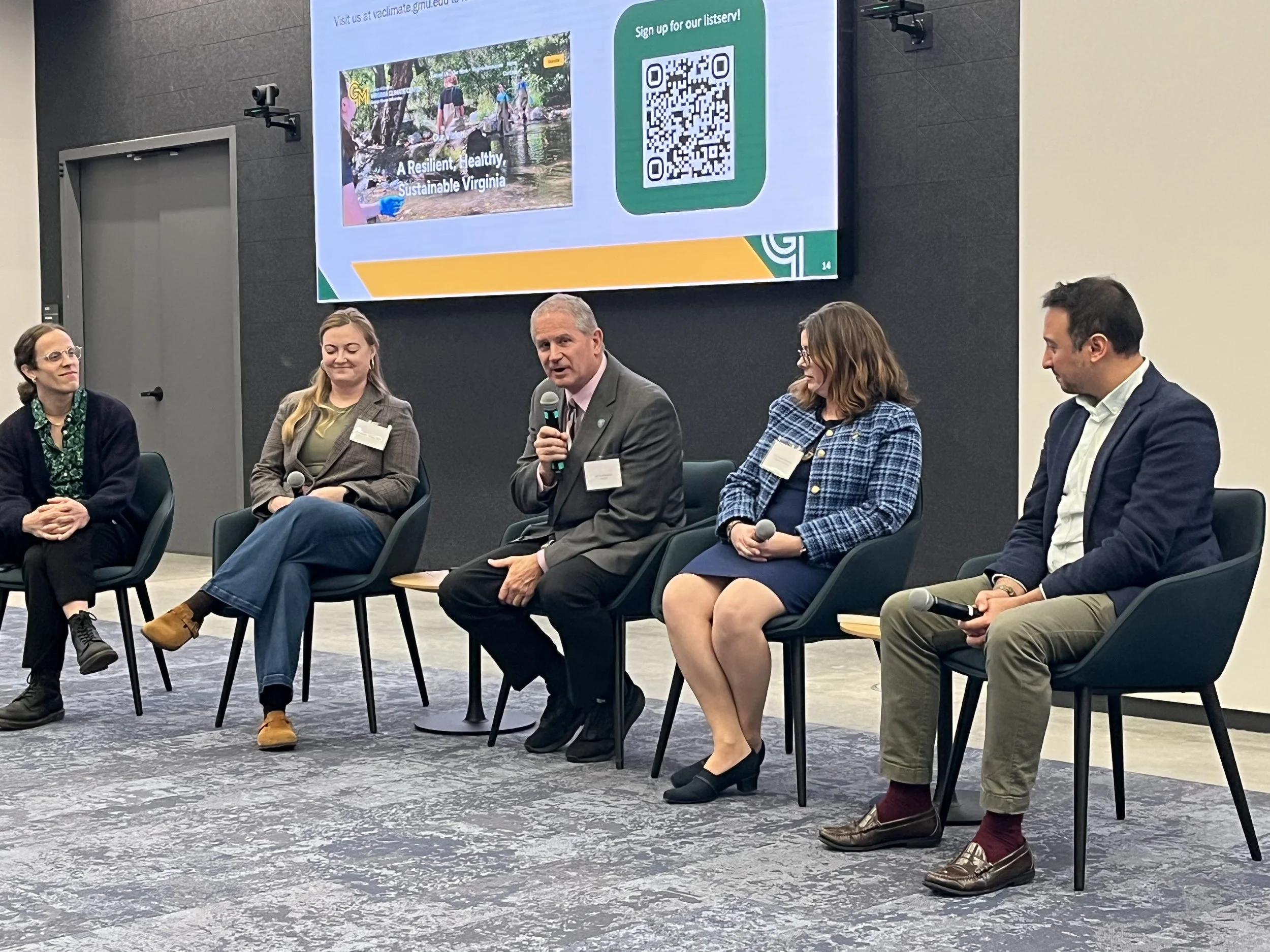CCS Leads Exposure and Risk Analysis for Virginia's First Comprehensive State Climate Assessment
November 20, 2025. The Center for Climate Strategies (CCS) served as a lead author in developing Virginia’s first State Climate Assessment, released today. This milestone report provides a unified, science-based understanding of the climate changes seen across Virginia, and how these changes are already affecting the Commonwealth’s people, economy, and environment.
"The Virginia Climate Assessment identifies key areas of sensitivity and risk exposure for the state’s economic sectors and sets the stage for new resilience actions that counteract losses and improve economic strength and stability in all regions. The knowledge and skills required for this assessment are the product of teamwork across several academic and professional disciplines and exemplify the value of institutional cooperation and community focus." Tom Peterson, President and CEO of the Center for Climate Strategies, Adjunct Professor George Mason University.
Managed by George Mason University, the assessment draws on contributions from technical experts across Virginia and the mid-Atlantic region. It synthesizes decades of peer-reviewed research into an accessible, actionable resource for policymakers, communities, and businesses. For the first time, localized information on temperature, precipitation, sea level, and extreme events have been compiled into a single framework with clear implications for regional economies and critical systems.
Tom Peterson participated in a panel discussion of chapter authors at the State Climate Assessment launch event at the Virginia Climate Summit.
CCS authored the report’s “Exposure to Climate Risks and Hazards” chapter, a cornerstone analysis which serves as a bridge between the climate science described in previous chapters and the real-world risks to Virginia’s economy and communities. The chapter evaluates how Virginia’s population, employment, and infrastructure are distributed across areas exposed to flooding, heat, drought, and compounding hazards, utilizing FEMA’s National Risk Index, the CDC Social Vulnerability Index, and sector-specific economic data.
The assessment also highlights regional differences in exposure across the state’s six climate divisions, identifying where risks to people and key economic sectors, including transportation, energy, agriculture, and health, are most concentrated. This assessment applies methods consistent with the National Climate Assessment’s Key Messages and Traceable Accounts framework, ensuring that findings are transparent, evidence-based, and replicable for future assessments.
Key findings and facts from CCS’s chapter:
1. Exposure is statewide and systemic
More than 3 million Virginians live in relatively high multi-hazard risk counties, and 1.4 million socially vulnerable residents face the greatest cascading impacts. Housing flood risk is rising; 344,000 homes (9% of housing stock) are already at substantial risk and flood insurance premiums are projected to climb 45%.
2. Virginia regional economies face distinct climate risks
Climate hazards threaten leading employers in every division. In Tidewater, tidal flooding could jeopardize 263,500 jobs and $11B in wages by 2050. Across Piedmont, Northern Virginia, and the Mountain regions, heat, flash floods, drought, and landslides increasingly disrupt labor, logistics, and manufacturing.
3. Critical infrastructure is a force multiplier of risk
Virginia’s economy relies on ports, data centers, highways, water, and the electric grid, all increasingly stressed by climate. Hampton Roads underpins $73B in annual trade and Northern Virginia hosts 13% of global data center capacity. 94% of major power outages are weather-related, and Virginia has already seen storms cause major damages (e.g. Hurricane Isabel: $128M in grid damage, ~1.8M outages).
Through its leadership on exposure and cross-sector risk analysis, CCS continues advancing science-based strategies that strengthen resilience, economic security, and community well-being.
READ the full report HERE


